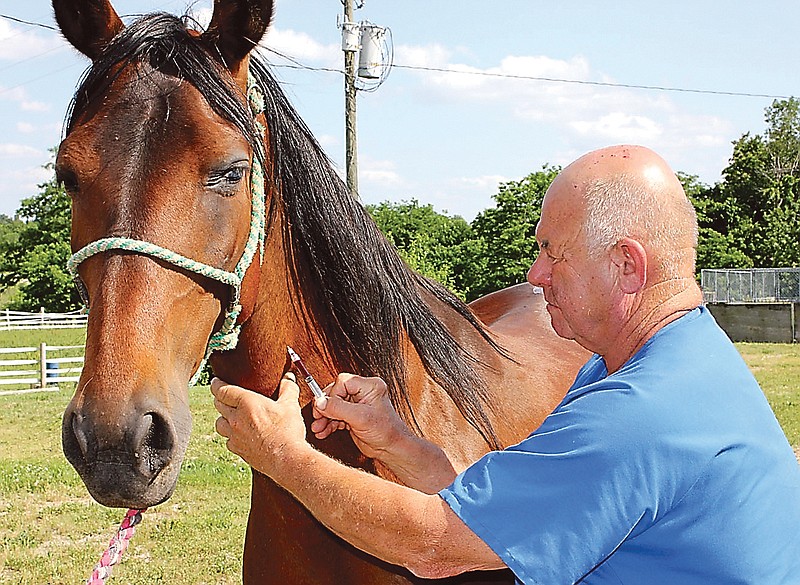A breakout of 12 cases of equine infectious anemia (EIA) in Nebraska has caused concern of Missouri owners of horses, mules and donkeys.
"This is the AIDS of the horse world. There is no known cure," said Dr. Robert Barnett, a Fulton veterinarian who raises mules and treats large animals.
Every year, Barnett insists on requiring all mules participating in the annual Fulton Street Fair to have a negative Coggins test performed on each participating animal. The test will detect the disease even if the animal has no symptoms yet.
"It is illegal in Missouri to sell a horse without a negative Coggins test," Barnett said.
In 2011, two Missouri horses in Pike County with EIA were found as part of the state's rules requiring a negative Coggins test for all horses changing ownership or exhibiting. Both horses in the herd were humanely euthanized at the request of the owner and under the recommendation of Dr. Taylor Woods, Missouri's state veterinarian.
The Nebraska Department of Agriculture has confirmed 12 cases of EIA this month in one horse herd located in northwest Nebraska.
Nebraska state veterinarian Dr. Dennis Hughes said EIA affects only horses, mules and donkeys; and usually is fatal to these animals. No other animals or humans can be infected with this disease, he said.
EIA is a blood-borne disease typically transmitted by biting insects such as horseflies and deerflies. It also can be transmitted from horse to horse through infected needles. There are no treatment options for infected horses, Hughes said.
The best defense against needle infection is to use only one needle for each horse when vaccinating or testing them.
Horses and mules should have a negative Coggins test before allowed to intermingle with other equine.
Symptoms of EIA include fever, depression, weight loss, swelling and anemia.
Hughes said owners of horses, donkeys or mules that have these symptoms are urged to contact their veterinarian immediately.
Horse owners are urged to take precautions to reduce the risk of infection in their herds. Those precautions include spraying to control insects and extra caution in use of needles for tests and vaccinations.
The Missouri Department of Agriculture recommends the use of fly control programs through foggers, fly repellents and electronic or automatic fly control systems.
Animal health equipment should be sterilized and disinfected.
EIA-infected animals become lifelong carriers of the disease.
The U.S. Department of Agriculture tracks the incidence of EIA. Missouri had two case reported in 2011, two in 2010, none in 2009, three in 2008, two in 2007, four in 2006, two in 2005, two in 2004, none in 2003, nine in 2002, and six in 2001. The incidence of EIA has declined in recent years. For example, in 2001 there were 120 EIA cases reported in Texas, 96 in Oklahoma and 69 in Arkansas.
More information is available by contacting the Missouri Department of Agriculture's Animal Health Division at 751-3377.

